Critical Thinking Easy Math Worksheets for Ages 8-9
5 filtered results
-
From - To
Boost your child's problem-solving skills with our "Critical Thinking Easy Math Worksheets for Ages 8-9." Designed to challenge young minds, these worksheets combine basic math principles with engaging activities ensuring math is fun and educational. Perfectly tailored for 8 to 9-year-olds, each worksheet focuses on enhancing critical thinking and logical reasoning. Your child will build a solid foundation in math while solving puzzles, decoding patterns, and exploring real-world scenarios. Start today with Kids Academy's expertly crafted resources and watch your child's confidence and abilities soar. Visit now to unlock a world of fun, interactive learning!
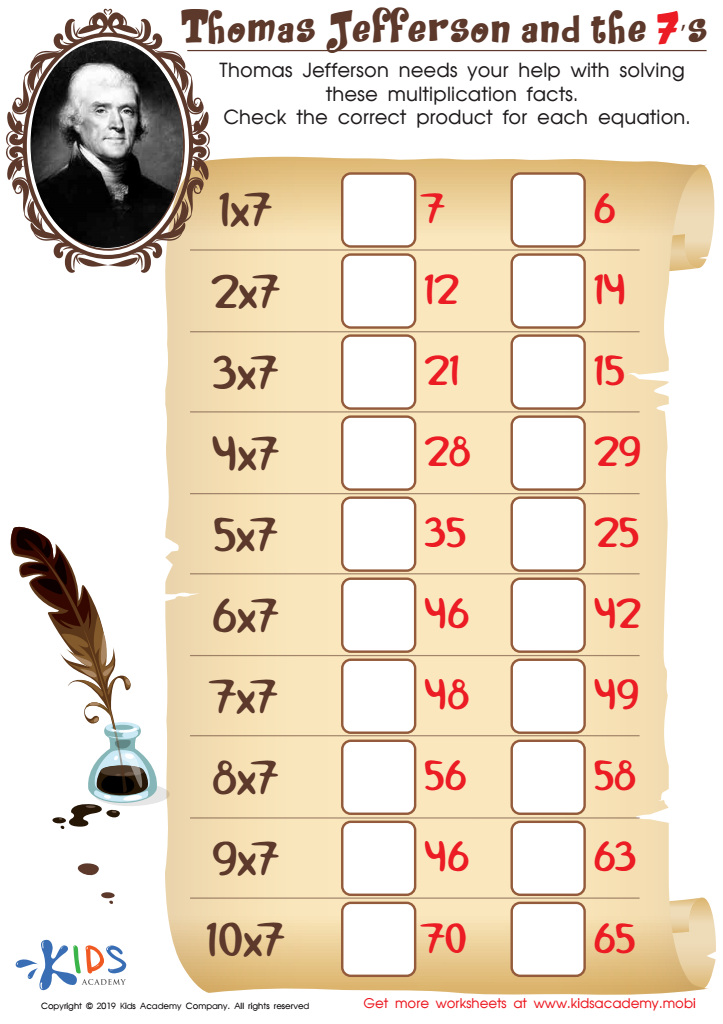

Thomas Jefferson and the 7’s Worksheet
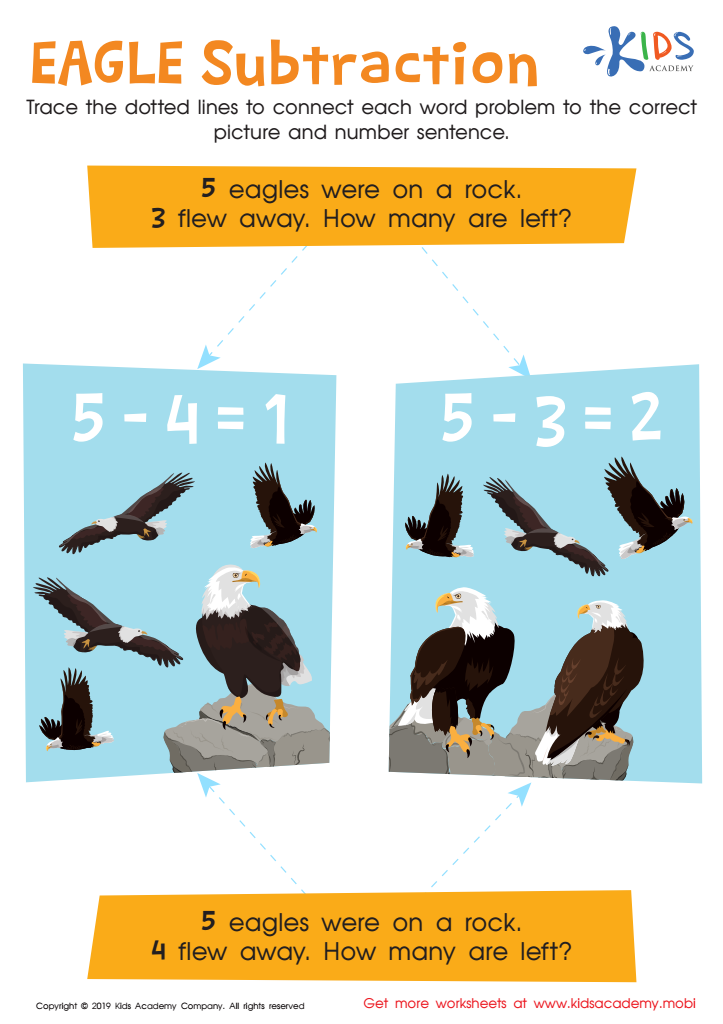

Eagle Subtraction Worksheet
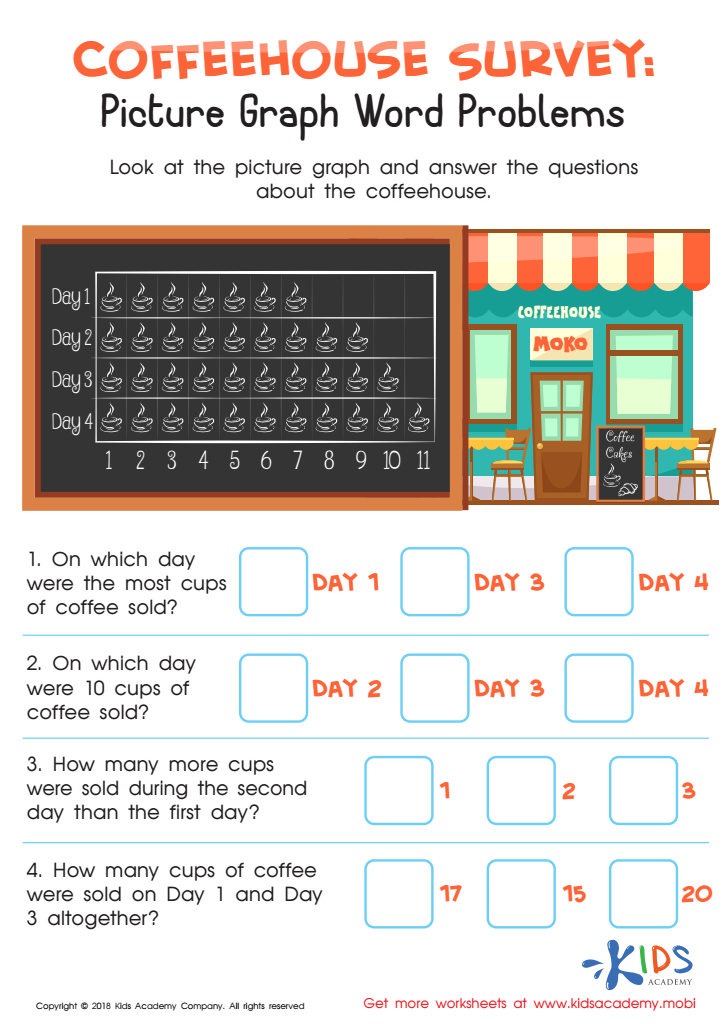

Coffeehouse Survey: Picture Graph Word Problems Worksheet
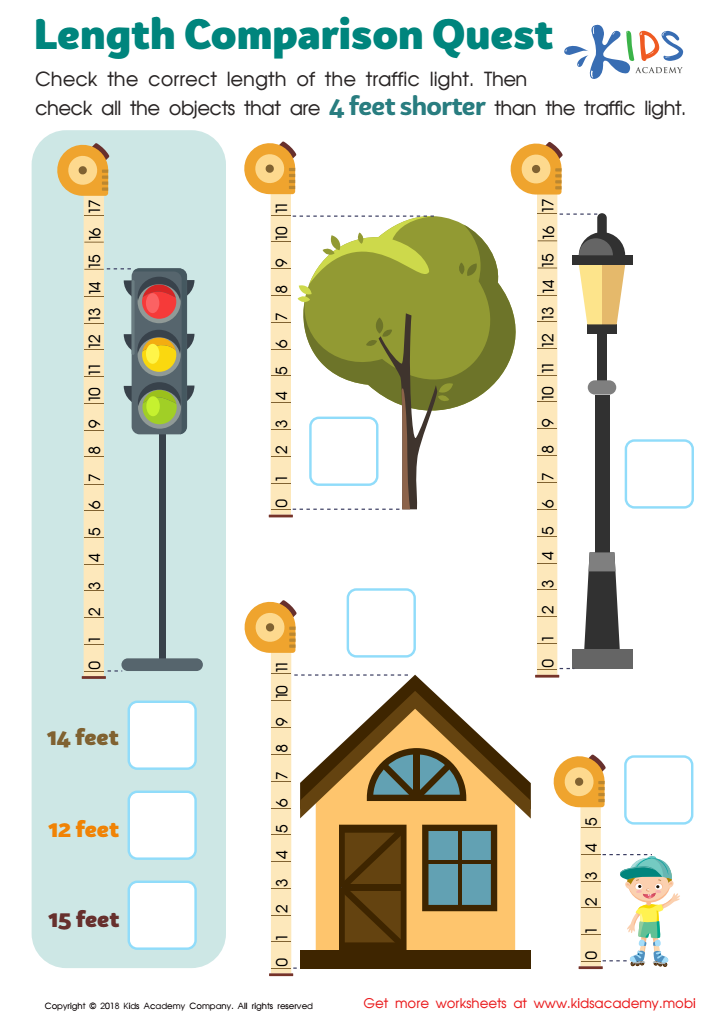

Length Comparison Quest Worksheet
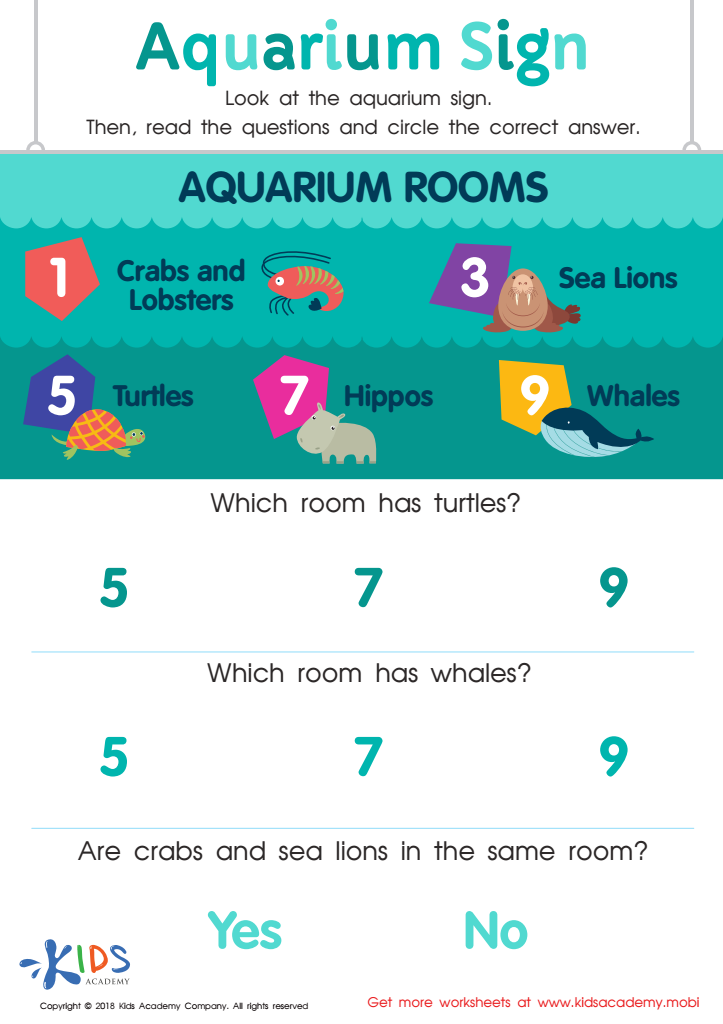

Assessment: Aquarium Sign Worksheet
Fostering critical thinking skills in young learners, especially within the context of math, is incredibly beneficial for their holistic academic and personal growth. At ages 8-9, children have the cognitive capacity to begin understanding more complex ideas and problem-solving techniques. Engaging them in critical thinking easy math exercises helps strengthen their analytical abilities, guiding them to observe, reason, and make logical deductions.
Critical thinking in math goes beyond just finding the right answers; it involves understanding the 'why' and 'how' behind those answers. This depth of comprehension is pivotal, not just for advancing in math, but for improving overall cognitive functions. It encourages students to approach problems methodically and develops their capacity to tackle unfamiliar challenges—skills that are essential for lifelong learning.
For parents, this fosters a supportive home environment where curiosity is encouraged, setting the stage for children to apply critical thinking in everyday situations. For teachers, integrating critical thinking in math lessons enhances their teaching efficacy, ensuring students grasp foundational concepts that are crucial as they progress through their academic journey.
Ultimately, by prioritizing critical thinking in math for this age group, we equip children with invaluable tools to succeed academically and develop into thoughtful, capable individuals ready for future challenges.
 Assign to My Students
Assign to My Students




















